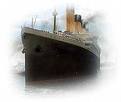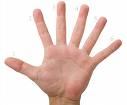 The congenital gestures of the winner
The congenital gestures of the winner
Is tossing your arms up in the gesture of a winner and sadly hanging your arms and head after a loss is innate or learned behavior?? Based on observations of blind athletes, scientists from the US and Canada say, that is the first. David Matsumoto of San Francisco State University and Jessica Tracy of the University of British Columbia in Vancouver looked at photos of blind winners and losers in Judo games during the Paralympics with 2004 year. They compared the photos with the poses taken during the Olympics by fully able competitors. In people who were blind from birth, loss and victory led to similar gestures as in the case of sighted people. Certain behavior appeared in humans, who could not learn from observation. Means, that we are dealing with something biologically determined – concludes Matsumoto. Expressing pride in winning through gestures may have emerged in the course of evolution as a form of emphasizing the social position held. Shrinking after losing was supposed to signal the aggressor, in this case, the winners, that the defeated accepts his inferiority. This prevented the conflict from aggravating any further. Research team members emphasize, that human behavior resembles the dominant and submissive attitudes used by other primates. Not all scientists agree with Matsumoto and Tracy's interpretation of facial expressions and gestures. Paul Ekman believes, that it is not known, what athletes express through the movements of their hands. Pride is an ambiguous concept, which applies to many different states. There is also no certainty, is it pride, or rather a state of joyful excitement.
Cultural affiliation slightly modifies the reactions of participants in sports struggles. Seeing athletes from countries that focus on individualism, np. USA. they tried not to assume the loser pose. This phenomenon did not occur in the case of blind losers. Academics believe, that the seers were taught to suppress the natural shame in such a situation.











